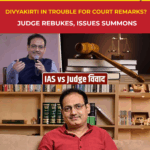TENNIS TRAGEDY: Rising Star Radhika Yadav Shot Dead by Her Father in Gurugram — Nation in Shock
Gurugram, Haryana — In a heartbreaking act of domestic violence that has stunned the nation, 25-year-old tennis player Radhika Yadav was shot dead by her own father inside their home in the upscale Sushant Lok area of Gurugram. The incident took place on a quiet Thursday morning but has since erupted into a national outcry over gender violence, mental health, and shattered dreams.

A Star With a Bright Future
Radhika Yadav wasn’t just another young athlete—she was a symbol of rising hope in Indian tennis. Having ranked among the top five women’s doubles players in Haryana and competing in the international ITF circuit, she had earned respect, admiration, and growing fame. After suffering a shoulder injury that paused her professional career, Radhika poured her passion into coaching, even launching her own tennis academy to train young aspirants.
She was known for her fierce discipline, humble attitude, and unwavering dedication. Friends described her as someone who “battled every obstacle with grace.”
But not even her fighting spirit could save her from what happened in the one place she should’ve felt safest—her home.
The Unthinkable Morning
On the morning of the tragedy, Radhika was reportedly in the kitchen preparing breakfast when her father, Deepak Yadav, entered the room with a revolver. Without warning, he allegedly fired five shots—three of which struck Radhika in the back.
Her uncle, who lived on the ground floor, heard the gunshots and rushed upstairs, only to find her lying in a pool of blood. She was rushed to a private hospital nearby but was declared dead on arrival. The father was arrested at the scene, and the licensed firearm was seized by police.
The Motive: Pride, Pressure, and Patriarchy
While early rumors hinted at arguments over Radhika’s growing presence on social media, the deeper truth is far more complex and disturbing. According to police sources, the murder stemmed from longstanding tensions over Radhika’s independence and success.
Her father, once the family’s breadwinner, had been struggling with feelings of insecurity and depression. Villagers allegedly mocked him for being financially dependent on his daughter and taunted him for “living off her success.” This perceived loss of authority and social respect led to rising anger and resentment.
Radhika’s refusal to shut down her tennis academy—despite repeated demands—became the breaking point. It wasn’t just about control. It was about a man’s wounded ego clashing with a woman’s ambition.

A Family Destroyed, A Nation Outraged
The news has sent shockwaves across the sports fraternity and general public. Social media is flooded with tributes, tears, and rage. Prominent athletes and celebrities have condemned the killing, calling for stronger protections for women and independent professionals.
Women’s rights activists have labeled the incident as a modern-day honor killing, rooted not in tradition, but in fragile masculinity and patriarchal control.
“How many more Radhikas must die before society accepts that daughters have the right to dream, to earn, to lead?” asked one activist at a candlelight vigil held in her memory.
A Life Cut Short
In just 25 years, Radhika had achieved more than many do in a lifetime. She inspired, mentored, and rose against the odds—only to be betrayed by someone she trusted most. Her students are heartbroken, her academy silent, and her future buried far too soon.
She wasn’t killed by an enemy. She wasn’t lost to a match or injury. She was destroyed by the very hands that once held her as a baby.
Final Words
Radhika Yadav’s death is not just a personal tragedy—it is a mirror held up to a society still battling with the success of its own daughters. Let this be a turning point.
Let her story be told. Let justice be done. And let no other dream be silenced this way again.
News
SHOCKING CRIME: Tennis Player Radhika Yadav Shot Dead by Her Father in Gurugram — Real Motive Deeper Than Instagram Reels
SHOCKING CRIME: Tennis Player Radhika Yadav Shot Dead by Her Father in Gurugram — Real Motive Deeper Than Instagram Reels…
SHOCKING HEALTH SCARE: Gauri Khan Breaks Down in Tears After Shah Rukh Khan Suffers Heart Attack, Rushed to Hospital
SHOCKING HEALTH SCARE: Gauri Khan Breaks Down in Tears After Shah Rukh Khan Suffers Heart Attack, Rushed to Hospital Mumbai,…
HORRIFIC ABUSE CAUGHT ON CAMERA: 12-Year-Old Boy Brutally Assaulted Inside Elevator in Maharashtra—Shocking CCTV Footage Goes Viral
HORRIFIC ABUSE CAUGHT ON CAMERA: 12-Year-Old Boy Brutally Assaulted Inside Elevator in Maharashtra—Shocking CCTV Footage Goes Viral Maharashtra, India —…
TRAGEDY IN THE SKIES: IAF Pilot Lokendra Sindhu Martyred in Churu Jaguar Crash — Had Become a Father Just Last Month
TRAGEDY IN THE SKIES: IAF Pilot Lokendra Sindhu Martyred in Churu Jaguar Crash — Had Become a Father Just Last…
SHOCKING TRAGEDY: Beloved TV Actress Found Dead in Her Apartment — Heartbroken Father Refuses to Accept Her Body
SHOCKING TRAGEDY: Beloved TV Actress Found Dead in Her Apartment — Heartbroken Father Refuses to Accept Her Body In a…
Heartbreak and Chaos in Bollywood: Kareena Kapoor Khan Hospitalized After Saif Ali Khan’s Shocking Loss of Entire Fortune and Pataudi Palace!
Heartbreak and Chaos in Bollywood: Kareena Kapoor Khan Hospitalized After Saif Ali Khan’s Shocking Loss of Entire Fortune and Pataudi…
End of content
No more pages to load











